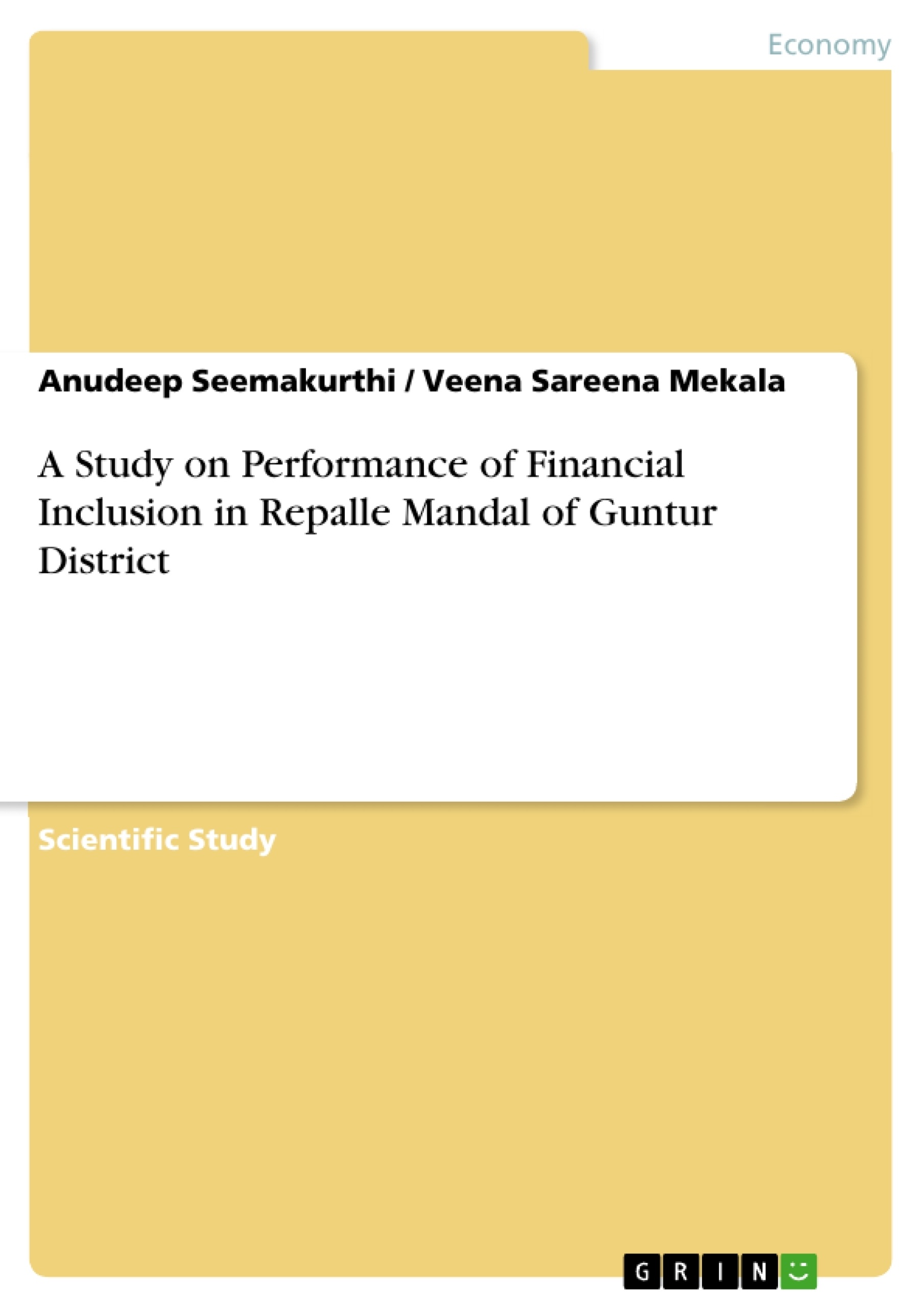Financial inclusion is delivery of banking services at an affordable cost ('no frills' accounts,) to the vast sections of disadvantaged and low income group. Unrestrained access to public goods and services is the sine qua non of an open and efficient society. As banking services are in the nature of public good, it is essential that availability of banking and payment services to the entire population without discrimination is the prime objective of the public policy.
Inhaltsverzeichnis (Table of Contents)
- Introduction
- Literature Review
- Research design and methodology
- Data analysis and Interpretation
- Findings/ Suggestions and Limitations
- Conclusion
- Reference
- Bibliography
- Annexure Questionnaire
Zielsetzung und Themenschwerpunkte (Objectives and Key Themes)
This study aims to investigate the performance of financial inclusion in Repalle Mandal of Guntur District, Andhra Pradesh. The research analyzes various aspects of financial inclusion, including access to financial services, usage of financial services, and the impact of financial inclusion on the local economy.
- Financial inclusion in Repalle Mandal
- Access to financial services
- Usage of financial services
- Impact of financial inclusion on local economy
Zusammenfassung der Kapitel (Chapter Summaries)
- Introduction: This chapter provides an overview of financial inclusion, its importance, and the context of the study in Repalle Mandal. It discusses the various dimensions of financial inclusion and its relevance to economic development.
- Literature Review: This chapter examines existing research on financial inclusion, focusing on studies conducted in India and other developing countries. It provides a theoretical framework for the study, exploring the different factors influencing financial inclusion and its impact on individuals and communities.
- Research design and methodology: This chapter details the research methodology employed in the study. It outlines the research design, data collection techniques, and the sample used in the analysis. The chapter explains how the data was gathered and analyzed to address the research questions.
- Data analysis and Interpretation: This chapter analyzes the collected data and presents the findings of the study. It explores the patterns and trends observed in the data, providing insights into the performance of financial inclusion in Repalle Mandal.
- Findings/ Suggestions and Limitations: This chapter summarizes the key findings of the study and provides recommendations for improving financial inclusion in Repalle Mandal. It also discusses the limitations of the study, acknowledging any potential biases or constraints in the research process.
Schlüsselwörter (Keywords)
Financial Inclusion, Repalle Mandal, Guntur District, Andhra Pradesh, Access to Financial Services, Usage of Financial Services, Impact of Financial Inclusion, Economic Development, India, Developing Countries.
Frequently Asked Questions
What is financial inclusion?
Financial inclusion is the delivery of banking and payment services at an affordable cost to disadvantaged and low-income groups.
What was the focus of the study in Repalle Mandal?
The study investigated the performance of financial inclusion, specifically access to and usage of financial services in the Guntur District of Andhra Pradesh.
Why are "no frills" accounts important for inclusion?
These accounts allow people with low income to access basic banking services without high minimum balance requirements or excessive fees.
How does financial inclusion impact the local economy?
It promotes economic development by providing individuals with safe ways to save, access credit, and participate in the formal financial system.
What role does public policy play in banking services?
Banking services are treated as a public good, meaning policy aims to ensure availability to the entire population without discrimination.
- Citation du texte
- Anudeep Seemakurthi (Auteur), Veena Sareena Mekala (Auteur), 2007, A Study on Performance of Financial Inclusion in Repalle Mandal of Guntur District, Munich, GRIN Verlag, https://www.grin.com/document/272257



